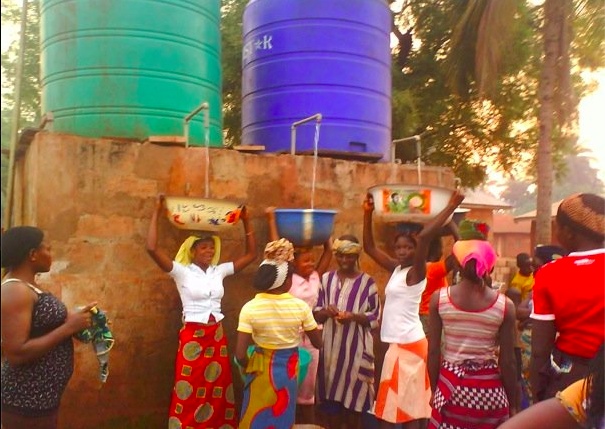
By Atayi Babs
Ivorian Government officials and Members of Parliament, representatives of the private sector, international development partners as well as African Development Bank’s (AfDB) water and sanitation experts gathered in at the AfDB headquarters in Abidjan, on Friday, March 20 to commemorate World Water Day and discuss the priorities and challenges relating to access to water on the continent.
All participants recognized that tackling water challenges effectively, has become a global topic, remarking that shortages of water and sanitation persist on the continent and that the resource is one of the most basic elements for life.
According to statistics and reports heard, close to a half a billion people are forced to live without safe drinking water and are deprived of basic sanitation. A substantial part of these people is made up of women and children living in impoverished conditions in rural zones, and sometimes in urban areas.
Drawing lessons from Côte d’Ivoire and speaking on behalf of funding partners in the country, UNICEF’s Resident Representative, Adèle Khudr explained that many villages do not have access to clean water and appropriate sanitation. “Availability of drinking water in schools and health centres is a key challenge and worth noting as we celebrate this World Water Day,” Khudr said.
The Bank Group’s Agriculture and Rural Development Director, Chiji Ojukwu, stated that water affects people’s lives in many ways, beginning with access and affordability. He dwelt on how poor water quality affects health and how girls are more affected as often they are burdened with walking long distances to fetch water.
“Access to drinkable water is an issue that clearly needs further advocacy, to reduce suffering by numerous women and children in rural African areas and some in urban zones,” said Côte d’Ivoire’s Water and Forestry Minister, Mathieu Babaud Darret, who commended the Bank Group’s engagement in the sector in his country.
Also speaking on the occasion, the Bank Group’s Director for Water and Sanitation, Mohamed El Azizi, made an analytical presentation on the institution’s water action plan across the continent, describing the resource as the most vital resource. “The dearth of water can break down social harmony and even cause wars between states,” he said.
El Azizi further affirmed that the AfDB collaborates with governments and development partners in sector working groups at the country level to improve the sector governance and planning. To this end, he underscored that, through the Bank’s various initiatives – including the Rural Water and Sanitation Initiative (RWSSI) and the African Water Facility (AWF) – the AfDB’s contribution to the financing of the water and sanitation sector across the continent has increased from $100 million in 2002 to $670 million in 2013.
More specifically, El Azizi stressed, “Since its inception, the Bank has financed more than 370 operations in this sector, totaling about US $3 billion, which has impacted more than 40 African countries. The RWSSI, created in 2003, was able to mobilize more than five billion euros to finance 49 projects, and helped more than 107 million people have access to water and provided more than 72 million people with access to sanitation.
“The African Water Facility has made it possible for 164,000 people to have access to a water supply and 437,000 people to gain access to sanitation,” he said, adding that, thanks to the AWF, more than 2 million people now have access to water for multiple uses.
How can water resources management play a more strategic role in inclusive growth? An interactive discussion was held and was an opportunity for an exchange of ideas, solutions and best practices on water governance for Africa’s inclusive growth.
Today, water issues are not matters of a single region or nation, but matters that require global solidarity and joint counter-measures. Effectively tackling water challenges has become a global topic for the century, the meeting concluded.









